Weaving the Stories of Women’s Lives
March is National Women’s History Month. Every year the National Women’s History Alliance selects a unifying theme to be shared with all who want to promote women’s history. Please feel free to use this theme and any other materials on our website for your programs or events.
This year’s theme presents the opportunity to weave women’s stories – individually and collectively – into the essential fabric of our nation’s history.
Accounts of the lives of individual women are critically important because they reveal exceptionally strong role models who share a more expansive vision of what a woman can do. The stories of women’s lives, and the choices they made, encourage girls and young women to think larger and bolder, and give boys and men a fuller understanding of the female experience. Knowing women’s achievements challenges stereotypes and upends social assumptions about who women are and what women can accomplish today.
There is a real power in hearing women’s stories, both personally and in a larger context. Remembering and recounting tales of our ancestors’ talents, sacrifices, and commitments inspires today’s generations and opens the way to the future.
2015 is also the 35th anniversary of the Women’s History Movement and the National Women’s History Alliance. We are proud that, after decades of dedicated research and technological advances, the stories of American women from all cultures and classes are accessible and visible as never before. Numerous scholars and activists helped shape the Women’s History Movement, and also provided the research and energy which created and sustains the National Women’s History Alliance. During 2015, we recognize and celebrate the many ways that women’s history has become woven into the fabric of our national story.
2015 National Women’s History Month Honorees
March is National Women’s History Month. 2015 is the National Women’s History Alliance’s 35th Anniversary. In celebration of this landmark anniversary, we have chosen 9 women as 2015 Honorees who have contributed in very special ways to our work of “writing women back into history.”
Together, these 2015 Honorees have written, co-authored, or edited more than 60 books. Holly Near has produced 30 CDs. Collectively, their creations reveal the depth and breadth of the multicultural female experience. They have woven women’s stories into the fabric of our history.
Please feel free to use these brief biographies and any other materials on our website for your programs or events.
Delilah L. Beasley (1867-1934)
Historian and Newspaper Columnist
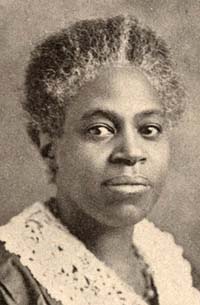
At her memorial service, which was a testament
to her life-long crusade for justice,
all attending stood and made the following pledge—
Every life casts it shadow , my life plus others make power to move the world.
I, therefore pledge my life to the living work of brotherhood
and material understanding between the races.
Delilah L. Beasley was the first African American woman to be regularly published in a major metropolitan newspaper and the first author to present the history of African Americans in early California.[expand title=”Read More” trigpos=”below”]
Growing up in Ohio, Beasley started writing social columns for black and white newspapers while still a teenager. After her parents’ deaths, she sought a career path that would better support her younger siblings, working as a hairdresser, massage therapist, nurse, and maid for many years. In 1910 she moved to Oakland California where she immersed herself in the local black community and again started writing articles in local newspapers.
In 1915 Beasley started writing a weekly column in the Oakland Tribune. Her articles protested the stereotypes contained in the movie The Birth of a Nation. Through a column called “Activities among Negroes,” she campaigned for African-American dignity and rights. Highlighting activities of local churches, women’s clubs, literary societies, along with national politics, and achievements of black men and women, her column aimed to give all readers a positive picture of the black community and demonstrate the capabilities of African Americans.
Deeply interested in the history of black Californians, Beasley trained herself in archival research and oral histories. In 1919 she self-published The Negro Trail-Blazers of California, a groundbreaking book chronicling the lives of hundreds of black Californians from the pioneer period through the early 20th century. Her book included an unprecedented amount of Black women’s history, focusing on the strong roles women played in their communities and featuring countless biographies of women leaders.
In the thirties, Beasley was the driving force behind the passage California’s first anti-lynching bill. She continued her column and was active in the community until her death in 1934.
[/expand]
Gladys Tantaquidgeon (1899-2005)
Mohegan Medicine Woman, Anthropologist, and Tribal Elder
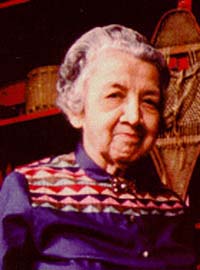
In my early years, I wasn’t aware that time was going so rapidly …
later I realized many of our old people were dying and their knowledge
went with them. Something had to be done to preserve a record of
their way of life. My goal has always been that this information …
be passed on to future generations. Gladys Tantaquidgeon
Gladys Tantaquidgeon’s life spanned the entire 20th century. She grew up in the Mohegan community (Uncasville, Connecticut) learning traditional practices, beliefs, and herbalism. She only completed grade school but at age 20 she took the opportunity to study anthropology at the University of Pennsylvania. She completed extensive field research on east coast Indian tribeal cultures and herbal medicines and published several books based on her research. In 1931, she co-founded Tantaquidgeon Museum with her brother and father; it remains the oldest American Indian owned museum in the U.S. [expand title=”Read More” trigpos=”below”]
In 1934, Tantaquidgeon started work with the Bureau of Indian Affairs and for the next 10 years she provided social services and worked as a native arts specialist in Native American communities in the north central U.S. She became an expert in preserving and reviving traditional practices that had been forbidden or lost in the 19th century. During the 1940s she also worked as a librarian in a Connecticut women’s prison, where she used skills gained from her previous work helping struggling Native women.
In 1947, Tantaquidgeon began working as the full time curator for her family’s museum. For the next 50 years she introduced visitors to her tribe’s history and traditions through a collection of artifacts and crafts. The museum was created under the assumption that “you can’t hate someone you know a lot about.” In her later years, she served on the Mohegan Tribal Council and continued her work as a medicine woman. Throughout her life Tantaquidgeon collected tribal records and documents that in 1994 proved to be critical to the success of the Mohegan Tribe’s decades-long campaign to gain federal recognition.[/expand]
Eleanor Flexner (1908 –1995)
Historian and Independent Scholar
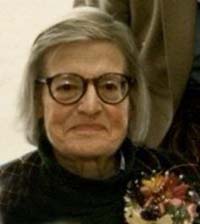
In the end all women and all men can only benefit from the more truthful
and balanced image of women which will emerge from history where they
are shown to have been actively involved in shaping their own destiny and
that of the country. Eleanor Flexner 1975 Preface to Century of Struggle
Eleanor Flexner’s groundbreaking 1959 book Century of Struggle: The Women’s Right Movement in the United States marked her as a pioneer in the field of women’s studies.
In this landmark publication Flexner relates women’s physically courageous and politically ingenious work for the vote to other 19th- and early 20th-century social, labor, and reform movements. Most importantly, she includes the importance of the campaigns for equal education, the abolition of slavery, and the advocacy of temperance laws. [expand title=”Read More” trigpos=”below”]
In the 1940s, Flexner began researching the 19th-century labor struggles of American women but found that few historians had touched the subject. She was already planning to write a history of the American woman suffrage movement and was convinced that any treatment must deal with the experiences of working class women and politically active women of color. Her book was so comprehensive on these unexplored subjects that Harvard University Press accepted it for publication despite her lack of academic credentials.
In the seventies Flexner expanded Century of Struggle to address the growing audience interested in women’s history and wrote her last book, a biography of Mary Wollstonecraft. She was awarded an honorary doctorate of humane letters from Swarthmore College in 1974. An expanded edition of Century of Struggle was published in 1975 and the paperback expanded yet again in 1999 and in 2007. Her analysis will long be recognized as a source of inspiration for “second wave” feminists who went on to the groundwork for subsequent generations of women’s history scholars.
[/expand]
Polly Welts Kaufman (1929-Present)
Writer, Teacher, Activist
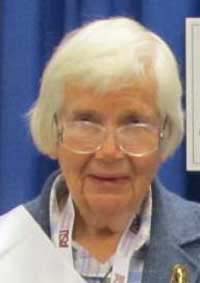
By connecting with the lives of your figurative sisters, mothers, grandmothers
and great grandmothers in all the diversity of the backgrounds they
represent, you gain strength from the challenges and successes of the women
who came before you. If she could do that — if she could overcome that —
if she could create that — so can I! Polly Welts Kaufman
Polly Welts Kaufman is a writer, teacher and above all an activist for equality. Her path to writing women’s lives began with the sound of a door closing, heavy as it was with gendered prejudice. Graduating from Brown University in 1951 with a degree in American Studies, she planned to teach high school in Providence, Rhode Island, only to be asked, “Are you married or going to be married?” Answering “Yes,” she was told to look elsewhere for employment. [expand title=”Read More” trigpos=”below”]
Filled with reformist zeal, Kaufman nevertheless became a high school teacher in the Pacific Northwest. When she moved to Boston, she became an activist in the civil rights movement during the embattled period of school desegregation. She ran a program to ensure that the 100+ public schools would, for the first time, have books by African American authors as well as books on African American culture and history.
Earning a Ph.D. at Boston University, she taught women’s history for over twenty years, first at the University of Massachusetts, Boston, and then at the University of Southern Maine.
Kaufman is the author of a long list of books and articles on women’s history including National Parks and the Woman’s Voice: A History; Boston Women and City School Politics, 1872-1905; and Women Teachers on the Frontier.
As a project director and principal researcher, she has been involved in establishing many women’s history trails including The Boston Women’s Heritage Trail in Massachusetts and The Portland Women’s History Trail in Maine. Kaufman also received two Fulbright Scholarships to Norway, she helped establish The Walking Trail of Statues to Women in Oslo. Her work celebrates the telling of women’s lives as a global conversation.[/expand]
Lynn Sherr (1943- Present)
Broadcast Journalist and Author
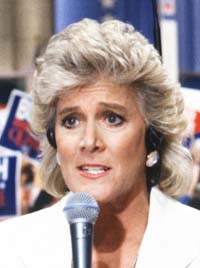
The modern women’s rights movement has brought about the greatest
social change in our lifetime. It woke me up, gave me purpose focused my
energy…I joined a growing number of twentieth-century feminist determined
to set the record straight and prove definitively that the same bold women
who had blazed the trails deserved our unmitigated thanks. Lynn Sherr
Lynn Sherr, an American broadcast journalist and author, began her career at Conde Nast, when she won the Mademoiselle Magazine Guest Editor Competition in college. She soon moved on to the Associated Press, then WCBS-TV, PBS, and ultimately ABC, where she covered politics, space and social change for more than 30 years. As a correspondent for the ABC news magazine 20/20, she received many honors, including the George Foster Peabody Award in 1994 for “The Hunger Inside,” about anorexia. [expand title=”Read More” trigpos=”below”]
For over a decade, Sherr along with Jurate Kazickas created The Women’s Appointment Calendar, a day-by-day recollection of women’s historic events. The calendars are fun-filled, primary source documents of women’s history before and during the second wave of the 20th century women’s movement.
Sherr is an unabashed feminist who has twice been the recipient of the Planned Parenthood’s Margaret Sanger Award, honoring journalists for “exceptional coverage of reproductive rights and health care issues.” She has rejected calls for a “new feminism,” remarking, “What’s wrong with the old feminism?”
In Susan B. Anthony Slept Here (1976), Sherr recognized the importance of reclaiming and visiting women’s historic landmarks. Her latest best-selling book, Sally Ride: America’s First Woman in Space (2014), is the only adult biography of that pathbreaking woman. Sherr’s career on and off TV is courageously chronicled in Outside the Box: A Memoir (2006).[/expand]
Judy Yung (1946-Present)
Oral Historian, Author, and Professor
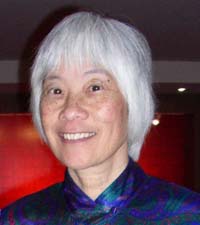
The personal is political for me… Inspired by the Asian American
and women’s liberation movements in the 1970s, I began researching,
interviewing, and writing about Chinese American women
in an effort to reclaim my history as a Chinese American woman,
refute mainstream stereotypes of the China Doll and Dragon Lady,
and set the historical record straight. And I haven’t stopped since. Judy Yung
Judy Yung is best known for her groundbreaking work in documenting the immigration history of Angel Island and the life stories of Chinese American women. As a second-generation Chinese American born and raised in San Francisco Chinatown, Yung embarked on a lifelong mission to reclaim the history of Chinese Americans and to educate Americans about the lives, struggles, and contributions to this country. [expand title=”Read More” trigpos=”below”]
Her first book, Island (1980), involved translating Chinese poems that were found on the walls of the Angel Island Immigration Station and conducting oral history interviews with former Chinese detainees.
In 1981, with a grant from the federal Women’s Educational Act Program, Yung researched and designed a pictorial exhibit on the history of Chinese American women that traveled throughout the country. In 1986, she wrote the first book on the same subject—Chinese Women of America: A Pictorial History.
Eager to delve deeper into Chinese American women’s history, Yung wrote Unbound Feet: A Social History of Chinese Women in San Francisco (1995), and Unbound Voices: A Documentary History of Chinese Women in San Francisco (1999). Based on primary sources (Chinese newspapers, immigration records, oral history interviews, and personal memoirs and writings), the books show how race, class, and gender discrimination shaped the lives of two generations of Chinese American women during a time of great social ferment in China as well as in the United States.
As a professor of American Studies at UC Santa Cruz, Yung taught courses in ethnic studies, Asian American studies, and women’s history, and helped develop an Asian American Studies Program.[/expand]
Darlene Clark Hine (1947- )
Historian and Educator
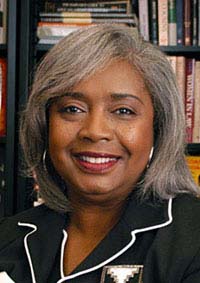
Receiving the 2013 National Humanities Medal… was both a blessing
and a profound moment in the history of Black Women’s History
because it represented acknowledgement and appreciation
of the work that I and my generation of scholars did to include
the contributions that black women have made to our nation’s
progress and to the global struggle against social injustice,
and economic and gender inequality. Darlene Clark Hine
As an historian Darlene Clark Hine sought not only to explore African American history, but to expand the discipline of history itself by focusing on black women “who remained at the very bottom of the ladder in the United States.” A leading expert on the subject of race, class, and gender in American society, Hine is credited with helping to establish a doctoral field in Comparative Black History at Michigan State University. [expand title=”Read More” trigpos=”below”]
While attending Chicago’s Roosevelt University in the sixties, Hine says it was “hearing black activists refer so often to history, seeing the black culture celebrated by artists, and reading new works by black writers “that inspired her with the hope that someday she could change the very definition of “history.”
“Historians can write a history of anything or anyone,” Hine is quoted as saying, “but apparently few considered black women worth the telling.” Hine herself had to be persuaded to explore the lives of African American women in Indiana, but soon became convinced that US history was leaving out far too much that was important to nurture a comprehensive understanding of American society. Thus her preliminary research on women’s roles in churches, and other settings led to brief monograph, When the Truth Is Told: Black Women’s Community and Culture in Indiana, 1875-1950 (1980).
“If I can…impress upon the historical profession” she once insisted, “how important it is to talk to and illuminate the lives of people who did not leave written records, but who also influenced generations of women all over the globe, then I will feel that my career is worthwhile.”[/expand]
Holly Near (1949-Present)
Singer, Songwriter, Social Activist
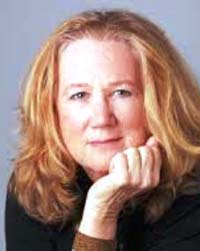
I am open and I am willing
For to be hopeless would seem so strange
It dishonors those who go before us
So lift me up to the light of change. Holly Near
Holly Near has inspired generations with music that chronicles progressive activism of the late 20th and early 21st centuries. During the war against Indochina Holly began to write songs based on historic and current events that were challenging progressives in the United States. She wrote about the killings at Kent and Jackson State, the struggles of The United Farm Workers and the frightening consequences of nuclear war. Her work with women in the military as well as women in countries occupied by the US military led Near to rethink the role of women in the world and the policy that challenges women in a very particular way. Near began to write songs specifically about women’s lives both in a global and personal context. [expand title=”Read More” trigpos=”below”]
One of the many founders of what became known as “women’s music,” Near was one of the first women to create an independent record company. In 1973 Redwood Records was formed and for nearly 20 years produced and promoted music rooted in the ideas of peace and feminism. An extraordinary coalition builder in what she calls the “heady days” of 70s activism, Near helped link the work of activists in the field of ecology, international feminism, global peace initiatives and LGBTQ awareness. Near has generously shared her talent to raise millions of dollars for progressive organizations. Her songs “Singing For Our Lives”, “It Could Have Been Me”,
“I Ain’t Afraid”, The Great Peace March and “I Am Willing” have become anthems for activist communities throughout the world.
Near’s unusual contribution historically placed in the post sixties era of feminist activism crystallized her iconic status. Her genuine performance style, powerful voice and inspirational lyrics identify her as a unique contributor to women’s history as well as a remarkable vocalist and entertainer.[/expand]
Vicki L. Ruiz (1955 – )
Educator and Pioneer in Latina History
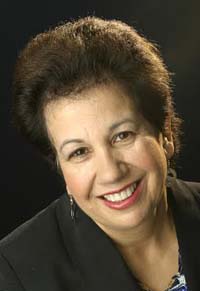
For me, history remains a grand adventure,
one which began at the kitchen table listening
to the stories of my mother and grandmother and
then took flight aboard the local bookmobile. Vicki Ruiz
The first in her family to receive any advanced degree, Vicki L. Ruiz earned a Ph.D in History at Stanford in June 1982. Two months later she showed up for her first teaching position with a baby on her hip and another on the way. Over the course of three decades, Ruiz has been a major force in shaping the field of Chicana history.[expand title=”Read More” trigpos=”below”]
In 2012, when she became the first Latina historian inducted into the American Academy of Arts and Sciences. Her commendation recognized her pioneering scholarship and leadership “skillfully blending insights from the history of women, of workers, and from the arena of ethnic studies.” Ruiz has inspired generations of students and scholars to integrate this large and complex ethnic group into the broad tapestry of American history.
Over the course of three decades, Dr. Ruiz has published over fifty essays and one dozen books including Cannery Women, Cannery Lives and From Out of the Shadows: Mexican Women in Twentieth- Century America. Her edited or co-edited collections include Unequal Sisters: An Inclusive Reader in U.S. Women’s History and the three-volume, Latinas in the United States: A Historical Encyclopedia. Dedicated to the people whose lives she writes back into history, Ruiz, explains: “As a historian, I have had the privilege of interviewing people whose quiet courage made a difference in their lives and in their communities.”
A committed educator, Dr. Ruiz contributed to numerous public history projects, including documentaries, museum exhibits, oral history programs, high school workshops, and teacher seminars. She is currently President-elect of the American Historical Association.[/expand]
